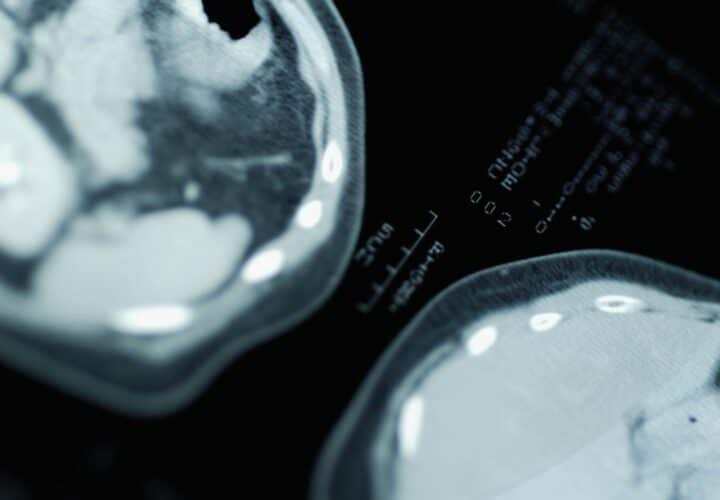If you're worried about your memory, here are questions to ask at your next doctor's appointment.
Doctors can spot the beginning stages of mild cognitive impairment, and the very early symptoms of Alzheimer’s, through memory tests. But these tests — which could catch diagnoses sooner rather than later — aren’t as routine or as available as they should be.
“We diagnose Alzheimer’s Disease too late,” Dr. Stephen Rao at Cleveland Clinic’s Lou Ruvo Center for Brain Health told Being Patient. “For most people, the disease is probably going on for ten, 15 years before they’re diagnosed.”
The longer you wait, the less of an impact an intervention could have on your cognitive health. Here’s how early memory tests can help spot symptoms sooner.
Memory Tests
According to the Alzheimer’s Association, mental status tests typically show whether a patient is aware of their own symptoms. They test certain things like whether you can remember a certain list of words or what day it is.
But currently, there’s no systemic, routine cognitive testing across hospital systems, Rao says. And these memory tests aren’t usually used until a patient is showing more severe symptoms and is further into the stages of the disease.
“You get a physical exam at the doctor, they’ll measure your weight and blood pressure,” Rao said. “But when you see your primary care physician — even though the Medicare annual wellness visits for people over 65 is supposed to involve some form of cognition testing — most doctors don’t have time [to complete memory tests].”
Currently, Rao is working on a pilot study at the Cleveland Clinic that is testing how memory tests on an iPad prior to a patient’s doctor visit could help spot people at risk sooner. The tests include measures of episodic memory and information processing speed, and the results go directly into the patient’s medical record.
“[Memory testing] isn’t going to diagnose Alzheimer’s disease, but it will identify people who are at risk,” Rao said. “Then you can follow up and assess them, get them into the system, and you’re looking at a much smaller percentage of people who have been flagged. Some studies suggest that if you just look at biomarkers, PET scans and cerebrospinal fluid, and predict who’s going to develop Alzheimer’s, your prediction gets much better.”
Not only can this help pinpoint the people at risk of developing Alzheimer’s and get them into treatment sooner, but it may also reduce the financial burden on the healthcare system.
“There are a large number of reasons to push the diagnosis earlier and earlier,” Rao said. “There’s two trillion dollars to be saved, even without a disease-modifying drug, if people are diagnosed in the mild cognitive impairment stages.”
What to Ask Your Doctor
Mercè Boada, neurologist and medical director of Fundació ACE said patients who are concerned about their memory should talk to their doctor about what they want their quality of life to look like in the future.
“Maybe you say, ‘Doctor I feel my memory is not working as well as five years ago.’ And sometimes, the doctor says that is normal because you are old,” she said. “But I would say, ‘What does it mean to be old? You are limiting my future and actions. Old isn’t my natural age. Old is my feeling about my life, my attitude, my autonomy.’ Memory is not linked only with age.”
Boada thinks patients should frequently check in with their doctor about their memory, regardless of their age.
“The first question I’d ask a doctor is not how old is my age on my identity card. ‘It’s how is my age in my brain?’” she said. “Doctors should ask how are you doing every day and how do you want to be the next 10 years?”
Rao has seen some patients who come in with concerns that their memory is slipping. He’s also come across patients who have no worries about their cognition, but are actually showing symptoms of mild cognitive impairment.
If you’re concerned you may be becoming more forgetful, Rao says to visit your general practitioner first.
“I would say they should discuss it with their primary care physician first,” Rao says. “This is something that happens quite frequently because memory functions do decline with age as part of normal aging. But the important thing is that Alzheimer’s is a disease, so what you’d see on neuropsychological tests of memory, you’d see an abnormal amount [of cognitive impairment].”
If your primary care physician is seeing some abnormal signs in your memory test, they’ll likely refer you to get laboratory work and possibly an MRI. Then you’ll be referred to a dementia specialist, who can then order a more extensive neuropsychological screening.
“If you can identify people very early, we may not have a drug for them, but we can help them change their lifestyle habits,” Rao said. “That’s why it’s important to do the screening on everyone, and not just pick and choose people.”
Research has shown that exercise, a strong social network and mental stimulation may all have a positive effect on protecting brain health.
Linda Freund produced the video and contributed to this article.





Great article Lecia! Most people fear being diagnosed with dementia. While this can be overwhelming, early diagnosis means the treatment begins in time, which can slow the progression.
That’s a good idea to visit your doctor first. I would think that they would be able to do general things to help your memory stay strong. I should take my dad to see the family doctor to see what they could do to help his memory stay strong.
Thank you for suggesting that we should discuss memory problems with our general practitioner first before we decide on taking any tests. My mother has been getting increasingly forgetful. She even lost her way back home the other day. It has never happened before and we were quite worried about her. Perhaps I should bring her to our regular doctor and ask if there are any neurocognitive tests that he can offer her. http://jeffersonhealthcare.net/home